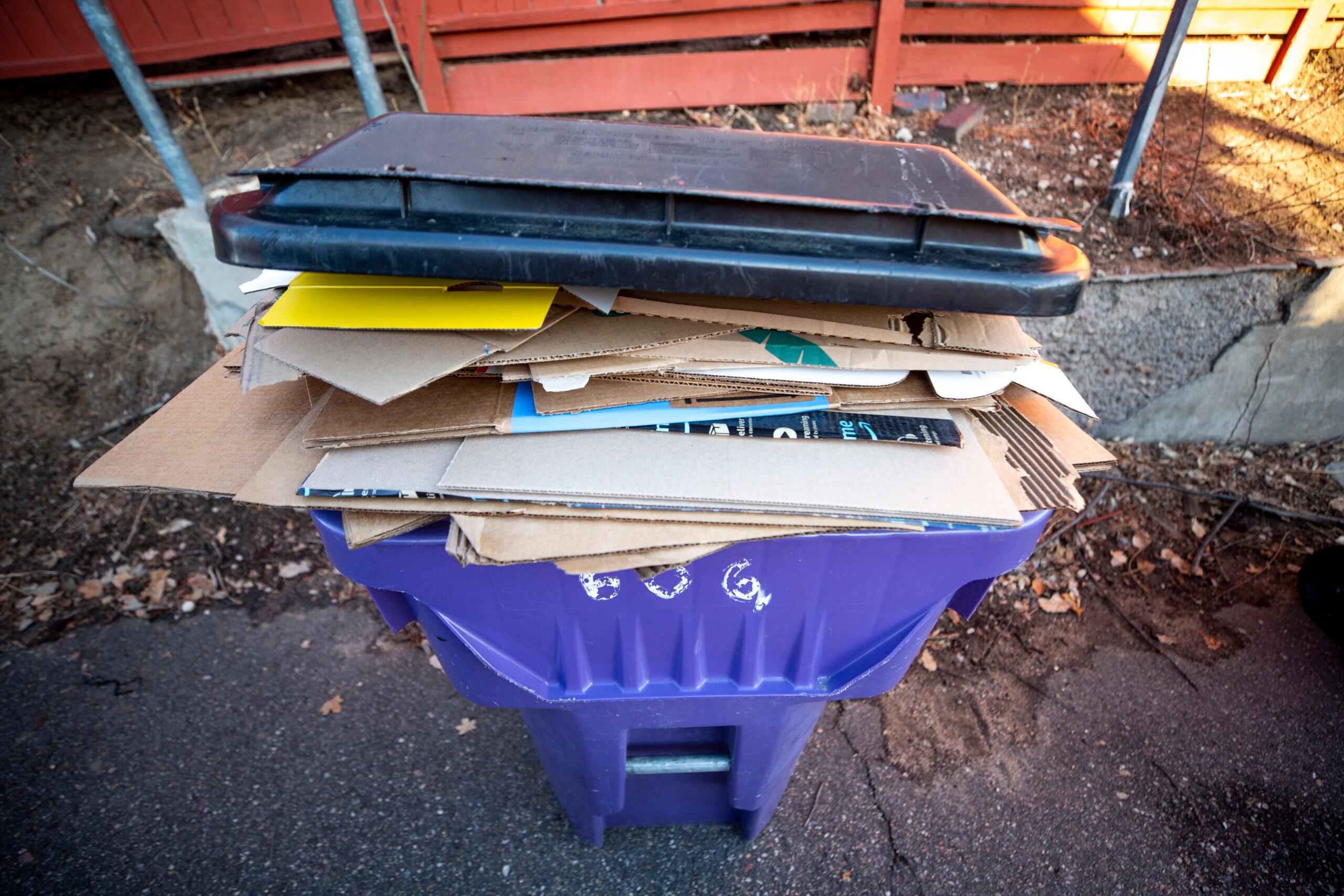Has your fence ever been dinged by a trash truck? Or maybe your garage was sideswiped?
You're not alone. So far this year, the city has paid out over $63,000 for 35 claims brought by residents across the city over damage done by garbage trucks. Denver has tried to lower that cost by moving trash pickup from narrow alleys to the streets in Congress Park so workers can use their new automated trucks, which are too big for some alleys but safer for workers. Now, some in the neighborhood say this is clogging up the streets and harder on residents.
The change from alleys to streets in some parts of Congress Park took effect in 2021, without much advance notice from the city, affecting alleys from Detroit Street to Colorado Boulevard and Seventh Avenue to Colfax.
While it's been a year since the change, residents are still upset, and Congress Park Neighbors, Inc held a town hall last month with Councilman Chris Hinds.
People opposing the year-old change say bins are clogging narrow two-way streets and bike lanes, and taking up parking, especially around local schools. For older people and people with disabilities, dragging bins farther to the street can be a challenge, and in a survey by Congress Park Neighbors Inc, some residents said they sustained injuries from dragging their bins.
Others expressed support for the change, noting that the bins on the street made the alleys cleaner.
Hinds, who represents Congress Park, joined residents at the town hall in August, and has been gathering feedback from residents. He said he gets daily emails and calls from people about the new trash collection system, and is meeting with the sanitation department to explore next steps.
Injuries are exactly what prompted the Department of Transportation and Infrastructure (DOTI) to make the change, along with property damage
DOTI says alleys in Congress Park are older and narrower, presenting a particular challenge for sanitation workers. These alleys can't use newer trucks with automated arms to pick up trash bins, instead requiring a different truck and a second staff person to wheel carts. This increases safety risks for sanitation workers, who can get insect bites, hand and finger injuries and overexertion from moving bins.
According to data from Denver Solid Waste Management, 36 workers filed injury claims in 2020, and 37 filed claims in 2021. In 2022 so far, 19 sanitation workers have filed claims. The claims are not broken down by location of injury.
The narrower alleys in Congress Park also make property damage more likely. In 2020, the city paid out 47 claims for a total just over $92,000, and 69 claims for a total around $102,000 in 2021. Deputy City Attorney Kerry Tipper, who provided the data, said the most common damage is to fences, walls, gutters and garage doors.
The city does not track injury and property damage claims by location, so it's unclear what proportion of the damage and injuries came from Congress Park. The old system also required DOTI to run two different operations, with the bigger automated trucks in wider streets and smaller semi-automated trucks in the alleys. DOTI Director of Communications Nancy Kuhn said pickup in the streets is more efficient with the new system.
Kuhn said the city doesn't currently have plans to change trash pickup in any other parts of the city.
"We want to work in alleys where it makes sense to do so," she said.
Kuhn said DOTI is open to returning to the Congress Park alleys in the future. "If we could find [automated trucks] that could operate in a tight alley that would be great, but we don't have that right now," she said.
In the meantime, DOTI is offering staff to move bins to the street for people who can't do it themselves, and is letting residents roll bins to the end of the alley instead. Residents can also have someone from DOTI come to their house personally to discuss options.













